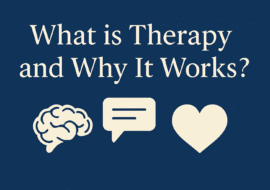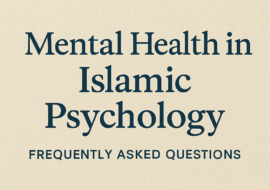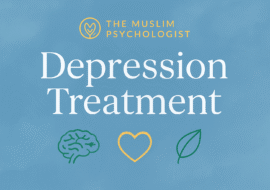
Ramadan and Depression: Challenges, Coping Strategies, and Spiritual Rewards
Introduction Ramadan is a sacred month of fasting, reflection, and spiritual growth for Muslims worldwide. However, for individuals struggling with depression, this period can present unique challenges. The changes in routine, altered sleep patterns, and social expectations may intensify depressive symptoms. Despite these difficulties, Ramadan also offers profound psychological and spiritual benefits. This article explores the struggles of those with depression during Ramadan, coping strategies from both traditional and Islamic psychology, and the spiritual rewards promised to those who persevere.
Spiritual and Psychological Benefits of Ramadan
- A Sense of Purpose: Engaging in acts of worship can provide meaning and a sense of accomplishment.
- Detoxification of the Mind and Body: Fasting has been linked to improved mental clarity and reduced inflammation.
- Strengthened Faith: Overcoming difficulties in Ramadan can increase reliance on Allah and build resilience.
- Community Connection: Despite social challenges, being part of an ummah (community) can foster belonging and support.
Challenges Faced by Individuals with Depression During Ramadan
- Fatigue and Sleep Disturbances – The altered eating and sleeping schedules can worsen fatigue, a common symptom of depression.
- Social Expectations – The communal aspect of Ramadan may feel overwhelming for those with social withdrawal tendencies.
- Low Energy Levels – Fasting can sometimes exacerbate feelings of lethargy and reduce motivation to engage in daily activities.
- Guilt and Spiritual Struggles – Individuals with depression may feel guilty if they struggle with ibadah (worship) or miss prayers due to exhaustion.
- Negative Self-Talk – Feelings of inadequacy and unworthiness may intensify during a time when spiritual devotion is emphasized.
Coping Strategies from Traditional Psychology
- Establish a Routine: Maintaining a structured schedule for suhoor, iftar, prayer, and rest can provide stability.
- Mindfulness and Cognitive Restructuring: Practicing gratitude and reframing negative thoughts can help in managing depressive symptoms.
- Seeking Support: Engaging with a trusted therapist, family, or support groups can help alleviate feelings of isolation.
- Hydration and Nutrition: Ensuring proper hydration and nutrient-dense meals can prevent physical symptoms that may worsen depression.
- Setting Realistic Goals: Focusing on small acts of worship, rather than feeling overwhelmed by expectations.
Coping Strategies from Islamic Psychology
- Tawakkul (Reliance on Allah): Trusting in Allah’s plan and surrendering to His wisdom can alleviate anxiety and despair.
- Dhikr (Remembrance of Allah): Engaging in dhikr and reciting Quranic verses can bring a sense of peace and purpose.
- Du’a (Supplication): Turning to Allah in moments of distress can provide comfort and reassurance.
- Giving Charity (Sadaqah): Acts of kindness and charity can elevate mood and bring blessings.
- Understanding the Mercy of Allah: Realizing that Allah does not burden a soul beyond its capacity (Quran 2:286) can be a source of relief.
Islamic Perspective on Struggles and Rewards The Prophet Muhammad (peace be upon him) said: “No fatigue, nor disease, nor sorrow, nor sadness, nor hurt, nor distress befalls a Muslim, even if it were the prick he receives from a thorn, but that Allah expiates some of his sins for that.” (Sahih al-Bukhari 5641)
Allah also reassures in the Quran:
“And We will surely test you with something of fear and hunger and a loss of wealth and lives and fruits, but give good tidings to the patient.” (Quran 2:155)
For those who struggle with depression during Ramadan, their perseverance is not unnoticed by Allah. The Prophet (PBUH) also said: “The greater the hardship, the greater the reward.” (Sunan at-Tirmidhi 2396)
Conclusion For individuals with depression, Ramadan may be a time of struggle, but it is also a time of immense spiritual opportunity. By incorporating both psychological and Islamic coping strategies, they can navigate their challenges while gaining emotional and spiritual growth. Ultimately, Allah’s mercy encompasses all, and even the smallest effort made in His path is recognized and rewarded.




